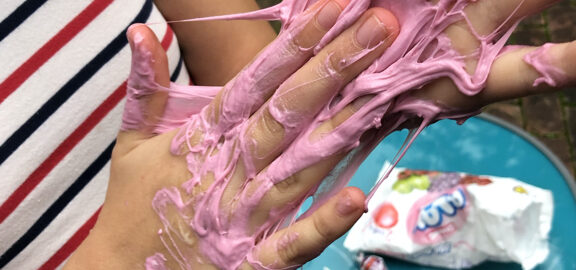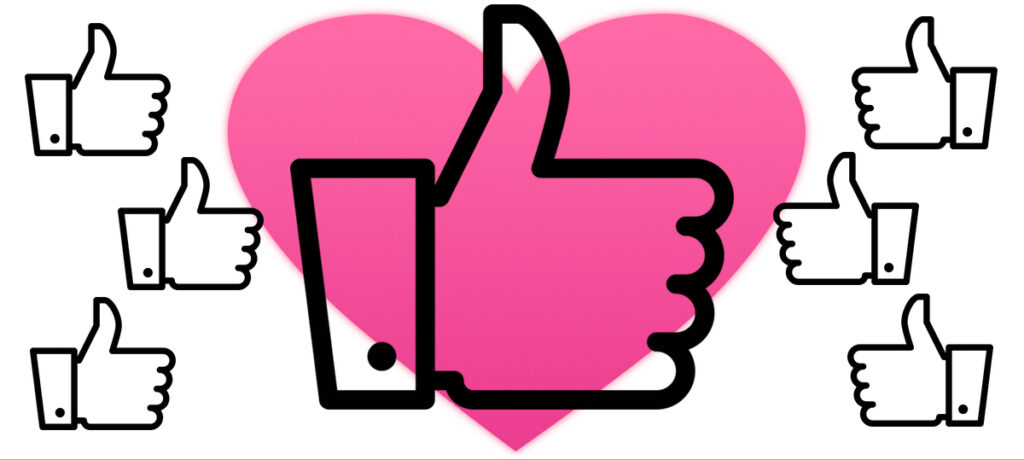Have you ever had the experience where someone seemed to make assumptions about you that didn’t really fit? And maybe even when you attempted to clarify the error, their agenda continued to be pushed, which might not only have been mystifying, but also agitatingly uncomfortable as well. It’s like an unwanted visitor; an oozy slime that continues to stick no matter how hard you try to remove it and you never remember inviting it in the first place. I feel compelled to add that if you tend to be quiet and introverted, there may be times when you feel like you are a walking projection screen with a giant bullseye draped across your shoulders.
Projection is one of my favorite defenses to talk about, partly because I think it is so common, and also because it can be at least somewhat easy to circumvent once you get the hang of it.
First, of course, is to identify its existence. Wikipedia defines psychological projection as “a defense mechanism in which the human ego defends itself against unwanted impulses or qualities (both positive and negative) by denying their existence in themselves while attributing them to others.” So, for example, maybe you’re with your friend and she sees a child really enjoying a Blow Pop and she remembers how much she used to love Blow Pops but as an adult, maybe she feels like it would be ridiculous to enjoy or even want such a thing. So she looks over at you and says “You really want that Blow Pop don’t you? I can tell, you’re about to go over there and steal a Blow Pop from that kid.” And you are like “Whaaa??? No!!!” But she keeps pushing the matter because deep down a part of her really wants a Blow Pop and at the same time there might be a lot of deep-rooted shame that she experiences around this (not to mention the bit about stealing). You can easily see how this could also translate to things like sex and money and interestingly, even something like kindness. The possibilities are endless.
Then, recognize that when one person operates from a defense mechanism, others tend to respond from a place of defense as well. And things can just get ugly from there. So taking a bird’s eye view is key here. You can rest in knowing that whatever it is they are projecting is their own issue…and it still belongs to them and not you. Their conviction does not create your truth. If this is something that you struggle with, please pause for a moment while I say that again so you can really take it in: Someone else’s conviction or assumption about you does not create your truth. That’s their stuff to deal with and hopefully somewhere along the line they will – and it’s also not your responsibility to make that happen.
That’s it. Once you see it coming, you can just step aside and see the slime hit the wall behind you. The person projecting will likely continue to project, but it doesn’t have to land on you. In fact, it can be slightly entertaining to see someone else be the targeted subject – not that I ever encourage pleasure from someone else’s misery – but this type of witnessing can also be quite validating. It was never about you in the first place, it was always about them. Ultimately, it just informs you more about who they are.
Of course this doesn’t really do much if you actually have some desire for the person who is doing all the projecting to get to know who you really are. For that to happen you would need to hear some genuine inquisitiveness on their part. Asking things like – How do you feel about this? What is it like for you? What is your experience? Even if your answers don’t completely change their opinion, at least there’s some attempt with understanding. As you begin to identify when someone is projecting, similarly you can also learn to identify when someone is truly interested in who you authentically are and what your felt experience is. This work is about showing up for the part of yourself that’s not ok with being shoved into a box that doesn’t fit.
If you want to take it a step further and are open to bringing some compassion to the mix, you can always check in with yourself. Have I ever done this to someone? Have I ever made assumptions that weren’t accurate? Have I ever assigned attributes to someone only to learn later that they didn’t really fit? Given the propensity of humans to turn to this sort of mechanism, chances are pretty high that you have. I’m sure I have. In truth, we all have our own personal issues to contend with and it’s in this way, that doing your own work, you can help to make the world a better place. It’s both. It’s about stepping out of the way from other people’s stuff while also looking a little more deeply into our own. Hopefully in the end, you’ll find that it’s ok. You can have your Blow Pop and eat it too.
Copyright 2020 © Rachel Braun, All rights reserved. Rachel Braun, ATR-BC, LPC Art Therapist Philadelphia, PA Specializing in anxiety, depression and eating disorders.











 As the holiday season descends upon us, it’s not really hard to imagine the things that potentially push us off kilter when faced with being thrown into or left out of the hustle and bustle all around.
As the holiday season descends upon us, it’s not really hard to imagine the things that potentially push us off kilter when faced with being thrown into or left out of the hustle and bustle all around.